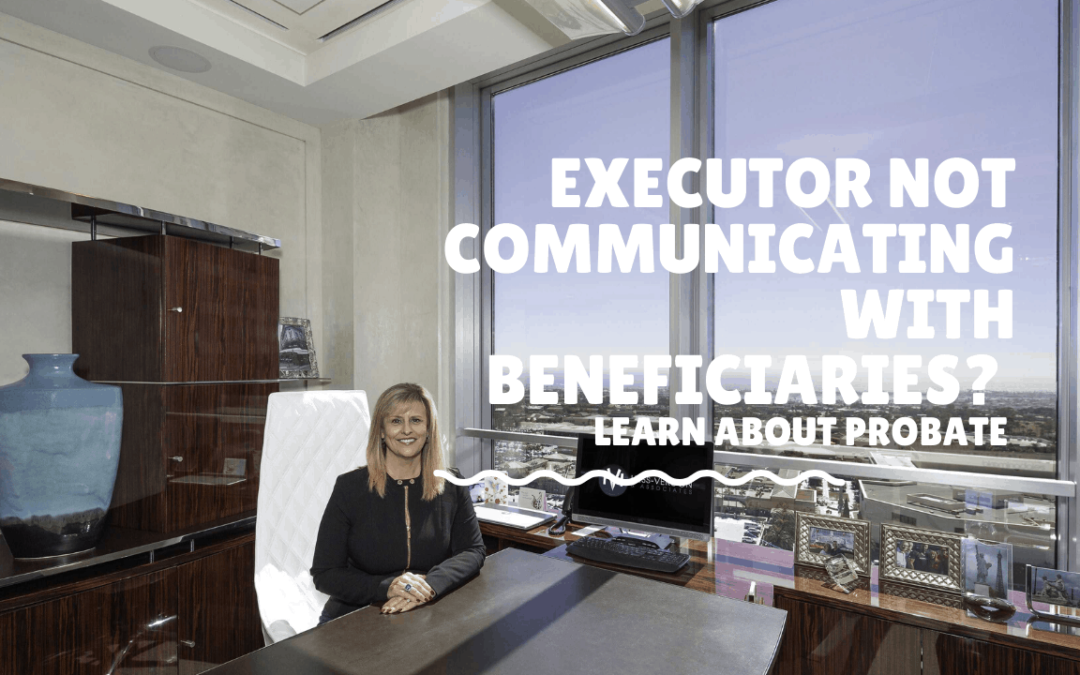Irrevocable vs. Revocable Living Trust.
The Main Differences
Many individuals have heard of “trusts” when discussing estate planning. Some individuals have also heard of and even discussed REVOCABLE VERSUS IRREVOCABLE TRUSTS. Such terms are frequently used when prospective customers and when talking about estate planning since these people know somebody who owns a trust. It’s likely that their folks discussed the Trust with them and may have had one.
As an alternative, occasionally, a close friend, grandmother, uncle, or aunt has used the Trust as an aspect of the estate planning. However, once it is time to talk about trusts, you discover that most clients are unaware of what they’re doing or how they might benefit from estate planning.
Request a Case Review Today
Call us at 888-318-4430

The differences between an Irrevocable vs Revocable Trust
This article highlights some of the distinctions between REVOCABLE VERSUS IRREVOCABLE TRUSTS. By going over these distinctions, we hope you’ll have a deeper understanding of how including a trust in an estate plan might help your family members after you pass away. The distinctions between revocable and irrevocable trusts are shown below.
Should you have questions or need an estate attorney, please call us at 949-706-7300.
What distinguishes a revocable trust from an irrevocable trust?
Despite the numerous distinct kinds of trusts, they may all be divided into two groups: revocable and irrevocable. If the grantor is competent, they may modify a revocable trust at any time in their lifetime.
Most of the time, you cannot amend an irrevocable Trust without the court order or consent of every Trust’s beneficiaries. An irrevocable trust becomes less adaptable as a result. However, although a revocable trust can’t, an irrevocable trust can shield property from certain estate taxes and creditors.
Beyond the fact that you may modify a revocable trust, you cannot change irrevocable trust; there are several important distinctions between the two types of trusts. With the revocable Trust, the grantor could also serve as the trustee; this is impossible with the irrevocable trust.
A revocable trust is safeguarded when you create it. It implies that the data in a trust is preserved within the families at the grantor’s death. If you create an irrevocable trust, you may make records of its establishment if the property is the subject of legal action.
Understanding the Revocable Trusts
Like some trusts, a revocable trust is a contract that permits you to deposit assets in a fund overseen by a trustee. The beneficiary and trustee will be chosen as part of the trust creation process. In your lifetime, you can transfer assets into the Trust, or you can ask for funding to take place after your passing. Typical methods of payment for this kind of Trust include:
* Term life insurance
* Retirement savings
* The sale of real estate
* Additional resources listed in the estate plan
In many circumstances, you act as the trustee up until your passing. It enables you to keep the Trust updated. You have the most freedom and control over the Trust’s operations with a revocable living trust following your demise. You can alter the trust contract or even end it.
The Trust’s assets are transferred to the beneficiary after your death. The final decision on the beneficiary’s use of this money rests with the trustee you designate to manage the Trust after your death. This kind of Trust has significant drawbacks. It doesn’t shield assets from creditors, and it might not be effective for relatives with special needs who get benefits depending on assets and income.
Revocable trust advantages
A revocable trust has several advantages, such as:
* A revocable trust protects the desires of the grantor. As per research, the fundamental value of a revocable living trust is the safety it gives by guaranteeing the grantor’s desires are carried out if disabled.
* Probate is avoided with a revocable trust. People frequently avoid probate because it’s a drawn-out, expensive, and public procedure that gives any disgruntled relatives a stage to quarrel over who receives what.
* You may hold qualified assets in a revocable trust. Revocable trusts can maintain assets like eligible accounts such as IRAs, 403(b)s, and 401(k)s, which wouldn’t be appropriate for an irrevocable trust.
Irrevocable Trust
In contrast, the conditions of an irrevocable trust are final as soon as you sign the documents. An irrevocable trust may not be amended, save in extremely unusual situations. You could not make any changes at the discretion of its creator or testator; they required the unanimous approval of its successors or a court decision. State legislation may determine the specific regulations.
Taxes are the primary justification for choosing an irrevocable trust arrangement. Irrevocable trusts eliminate the beneficiary’s taxable estate resources, preventing estate taxes from being owed upon death. Additionally, they exempt the donor from paying taxes on any income produced by the assets.
Irrevocable trusts could be challenging to establish and need the assistance of an experienced trust lawyer. An irrevocable trust may be useful to safeguard your property if your line of work puts you in danger of lawsuits, like being a lawyer or a medical professional. An irrevocable trust is shielded from creditors and even court judgments when assets, whether money or real estate, are transferred to ownership. But since you cannot change it, an irrevocable trust is trickier to establish than a revocable one.
Advantages of an Irrevocable Trust
How may obtaining an irrevocable trust be a wise decision given the strict requirements of such a trust? Unbelievably, an irrevocable trust has certain particular advantages.
* Estate tax advantage An irrevocable trust‘s contents and holdings do not increase the estate’s value. As a result, someone with a sizable estate may find it wise to create an irrevocable trust. Estates worth over $11,580 million will be liable to federal tax in 2020.
* Asset defense: Assets can be shielded against judgments and creditors via an irrevocable trust. It might be a smart choice if you have a high-profile profession or are otherwise likely to face legal action.
* Accessibility to government benefits: Once it comes time to apply for government benefits such as supplementary security and Medicare income, your wealth may work against you. You might avoid having to spend all of your assets and funds before being eligible for aid by placing them in an irrevocable trust. It can play a significant role in protecting your heirs’ fortune.
Which form of Trust suits you the best?
What kind of Trust is best for you may vary depending on the circumstances and the BENEFITS OF REVOCABLE VERSUS irrevocable trust. Due to their adaptability and the reality that most Americans’ estates will not be subject to inheritance taxes, revocable trusts are typically more popular.
If any of the following apply to you, you might have to consider revocable Trust:
* You wish to skip the probate process and have a private transaction of the assets to your heirs.
* You would like to prevent supplemental probate in a jurisdiction different from the one place you live because you own property in several states.
* You anticipate that your goals for the assets may alter as you age, and you desire the flexibility to modify the beneficiaries.
* After creating the Trust, you wish to be able to use and manage your assets as usual.
* Your estate’s value is below the federal estate tax exclusion amount.
If any of these situations apply to you, you should consider irrevocable Trust:
* You would like to escape estate taxes, but the value of your assets exceeds the federal estate tax exemption.
* After creating the Trust, you feel safe relinquishing usage or management of your property.
* You wish to defend your assets against potential creditors. You may shield assets placed in an irrevocable trust from some creditors and legal actions because they aren’t regarded as yours.
The law of estate planning is highly complex. Attorneys who don’t deal with trusts regularly could find it challenging to guide you as you analyze your alternatives and decide which course is best for your financial and personal interests. To fully comprehend your circumstances and your family’s financial requirements, experienced attorneys would first listen to you attentively. Only after that will we be able to give you advice and direction on the kind of Trust that might suit you the most.
Take away
The majority of people establish Trusts for very particular reasons. They choose to safeguard their estate and express their intentions for the long term. Your level of security will determine which trust type is best—revocable trust vs. irrevocable trust.
For understandable reasons, a Revocable Trust can be the best option if you want to maintain control over your estate. For most people, it’s extremely advantageous to have the option to alter and modify their Trust in the future. However, it isn’t always the greatest choice.
You might consider an irrevocable trust when you have a sizable estate, are worried about estate taxes, or face future liens or court judgments. You can defend your estate, loved ones, and yourself from future legal proceedings by establishing anirrevocable trust. It also implies that you can secure your estate’s financial future by avoiding significant estate taxes.
Here at Hess-Verdon, we have experienced attorneys who can assist you because they have helped clients with estate planning to achieve their goals. Call 949-706-7300.
Meet The Team

Experienced Will and Trust Attorney Services
Will And Trust Attorney Inheritance can involve disputes such as children fighting over assets, ex-wives fighting over...

How to Hire a Probate Court Attorney for Litigation Matters
How to Hire a Probate Court Attorney for Litigation Matters The time accompanying the death of a loved one is...

Executor Not Communicating with Beneficiaries | What to Do!
Executor Not Communicating with Beneficiaries Executors have a fiduciary duty to keep beneficiaries informed about...

The Basics of Will Disputes: Contesting a Will’s Validity
Contesting the Will When a loved one passes away, their will is their final word, a roadmap that dictates the division...

When to Seek Help from Contested Wills and Probate Lawyer
Contested Wills and Probate Lawyers Dealing with a loved one's will can be a sensitive matter. It's an emotional time,...
“Absolutely top notch firm for handling all your estate planning matters.”
“Jillyn’s expertise and positive attitude, also wonderful staff. Jillyn’s the best!”
“Jillyn’s knowledge. Always does a terrific job of explaining everything.”
Request a Case Review Today
TRUSTEE REPRESENTATION
RECENT POSTS
Top Orange County Probate Attorney
Top Orange County Probate Attorney When navigating the complexities of estate management, an Orange County probate attorney becomes your indispensable guide. Your peace of mind hinges on expert legal support during these intricate proceedings. With stakes this high,...
What To Expect From A Probate Attorney
What to Expect from a Probate Attorney in California In simple terms, probate is the legal process of administering an individual's estate posthumously. The courts review the will if there is any present, and in the absence, the courts will still decide on the best...
How Does A Trust Work. What to Know!
How Does a Trust Work? A trust is essential in ensuring that your assets are protected and that their distribution after you die is organized. Trusts are critical aspects of estate planning. A trust refers to a legal agreement where the trustor or settlor conveys...
How to Get A Copy of A Trust Document
How To Get A Copy of A Trust Document Have you wondered if your trustee is required to issue you a copy of the trust, and do you know what to do if they decline to provide you a copy of the trust? Here's an answer to these and other questions you might have on how to...
Does A Life Estate Override A Will
Does a Life Estate Override a Will? A life estate deed takes precedence over a will, ensuring that the property specified in the deed passes directly to the remainderman upon the life tenant's death, regardless of conflicting instructions in the will.Does a Life...
Hess-Verdon
BENEFICIARY REPRESENTATION
JOIN HESS-VERDON CHARITABLE GIVING PROGRAM
ADDRESS
CALIFORNIA LAW FIRM
Copyright © 2022 Hess-Verdon, PLC. All rights reserved. The information on this website is for general information purposes only. Nothing on this site should be taken as legal advice for any individual case or situation. This information is not intended to create, and receipt or viewing does not constitute, an attorney-client relationship. The verdicts and settlements listed on this site are intended to be representative of cases handled by Hess-Verdon & Associates, PLC. These listings are not a guarantee or prediction of the outcome of any other claims. The information contained on this website is not tax or legal advice and is not a substitute for such advice. State and federal laws change frequently, and the information in this article may not reflect your own state’s laws or the most recent changes to the law. For current tax or legal advice, please consult with an accountant or an attorney.
TRUSTEE REPRESENTATION
RECENT POSTS
Top Orange County Probate Attorney
Top Orange County Probate Attorney When navigating the complexities of estate management, an Orange County probate attorney becomes your indispensable guide. Your peace of mind hinges on expert legal support during these intricate proceedings. With stakes this high,...
What To Expect From A Probate Attorney
What to Expect from a Probate Attorney in California In simple terms, probate is the legal process of administering an individual's estate posthumously. The courts review the will if there is any present, and in the absence, the courts will still decide on the best...
How Does A Trust Work. What to Know!
How Does a Trust Work? A trust is essential in ensuring that your assets are protected and that their distribution after you die is organized. Trusts are critical aspects of estate planning. A trust refers to a legal agreement where the trustor or settlor conveys...
How to Get A Copy of A Trust Document
How To Get A Copy of A Trust Document Have you wondered if your trustee is required to issue you a copy of the trust, and do you know what to do if they decline to provide you a copy of the trust? Here's an answer to these and other questions you might have on how to...
Does A Life Estate Override A Will
Does a Life Estate Override a Will? A life estate deed takes precedence over a will, ensuring that the property specified in the deed passes directly to the remainderman upon the life tenant's death, regardless of conflicting instructions in the will.Does a Life...
Hess-Verdon
BENEFICIARY REPRESENTATION
JOIN HESS-VERDON CHARITABLE GIVING PROGRAM
ADDRESS
CALIFORNIA LAW FIRM
Copyright © 2022 Hess-Verdon, PLC. All rights reserved. The information on this website is for general information purposes only. Nothing on this site should be taken as legal advice for any individual case or situation. This information is not intended to create, and receipt or viewing does not constitute, an attorney-client relationship. The verdicts and settlements listed on this site are intended to be representative of cases handled by Hess-Verdon & Associates, PLC. These listings are not a guarantee or prediction of the outcome of any other claims. The information contained on this website is not tax or legal advice and is not a substitute for such advice. State and federal laws change frequently, and the information in this article may not reflect your own state’s laws or the most recent changes to the law. For current tax or legal advice, please consult with an accountant or an attorney.
TRUSTEE REPRESENTATION
RECENT POSTS
Top Orange County Probate Attorney
Top Orange County Probate Attorney When navigating the complexities of estate management, an Orange County probate attorney becomes your indispensable guide. Your peace of mind hinges on expert legal support during these intricate proceedings. With stakes this high,...
What To Expect From A Probate Attorney
What to Expect from a Probate Attorney in California In simple terms, probate is the legal process of administering an individual's estate posthumously. The courts review the will if there is any present, and in the absence, the courts will still decide on the best...
How Does A Trust Work. What to Know!
How Does a Trust Work? A trust is essential in ensuring that your assets are protected and that their distribution after you die is organized. Trusts are critical aspects of estate planning. A trust refers to a legal agreement where the trustor or settlor conveys...
How to Get A Copy of A Trust Document
How To Get A Copy of A Trust Document Have you wondered if your trustee is required to issue you a copy of the trust, and do you know what to do if they decline to provide you a copy of the trust? Here's an answer to these and other questions you might have on how to...
Does A Life Estate Override A Will
Does a Life Estate Override a Will? A life estate deed takes precedence over a will, ensuring that the property specified in the deed passes directly to the remainderman upon the life tenant's death, regardless of conflicting instructions in the will.Does a Life...
Hess-Verdon
BENEFICIARY REPRESENTATION
JOIN HESS-VERDON CHARITABLE GIVING PROGRAM
ADDRESS
CALIFORNIA LAW FIRM
Copyright © 2022 Hess-Verdon, PLC. All rights reserved. The information on this website is for general information purposes only. Nothing on this site should be taken as legal advice for any individual case or situation. This information is not intended to create, and receipt or viewing does not constitute, an attorney-client relationship. The verdicts and settlements listed on this site are intended to be representative of cases handled by Hess-Verdon & Associates, PLC. These listings are not a guarantee or prediction of the outcome of any other claims. The information contained on this website is not tax or legal advice and is not a substitute for such advice. State and federal laws change frequently, and the information in this article may not reflect your own state’s laws or the most recent changes to the law. For current tax or legal advice, please consult with an accountant or an attorney.
TRUSTEE REPRESENTATION
RECENT POSTS
Top Orange County Probate Attorney
Top Orange County Probate Attorney When navigating the complexities of estate management, an Orange County probate attorney becomes your indispensable guide. Your peace of mind hinges on expert legal support during these intricate proceedings. With stakes this high,...
What To Expect From A Probate Attorney
What to Expect from a Probate Attorney in California In simple terms, probate is the legal process of administering an individual's estate posthumously. The courts review the will if there is any present, and in the absence, the courts will still decide on the best...
How Does A Trust Work. What to Know!
How Does a Trust Work? A trust is essential in ensuring that your assets are protected and that their distribution after you die is organized. Trusts are critical aspects of estate planning. A trust refers to a legal agreement where the trustor or settlor conveys...
How to Get A Copy of A Trust Document
How To Get A Copy of A Trust Document Have you wondered if your trustee is required to issue you a copy of the trust, and do you know what to do if they decline to provide you a copy of the trust? Here's an answer to these and other questions you might have on how to...
Does A Life Estate Override A Will
Does a Life Estate Override a Will? A life estate deed takes precedence over a will, ensuring that the property specified in the deed passes directly to the remainderman upon the life tenant's death, regardless of conflicting instructions in the will.Does a Life...
Hess-Verdon
BENEFICIARY REPRESENTATION
JOIN HESS-VERDON CHARITABLE GIVING PROGRAM
ADDRESS
CALIFORNIA LAW FIRM
Copyright © 2022 Hess-Verdon, PLC. All rights reserved. The information on this website is for general information purposes only. Nothing on this site should be taken as legal advice for any individual case or situation. This information is not intended to create, and receipt or viewing does not constitute, an attorney-client relationship. The verdicts and settlements listed on this site are intended to be representative of cases handled by Hess-Verdon & Associates, PLC. These listings are not a guarantee or prediction of the outcome of any other claims. The information contained on this website is not tax or legal advice and is not a substitute for such advice. State and federal laws change frequently, and the information in this article may not reflect your own state’s laws or the most recent changes to the law. For current tax or legal advice, please consult with an accountant or an attorney.

